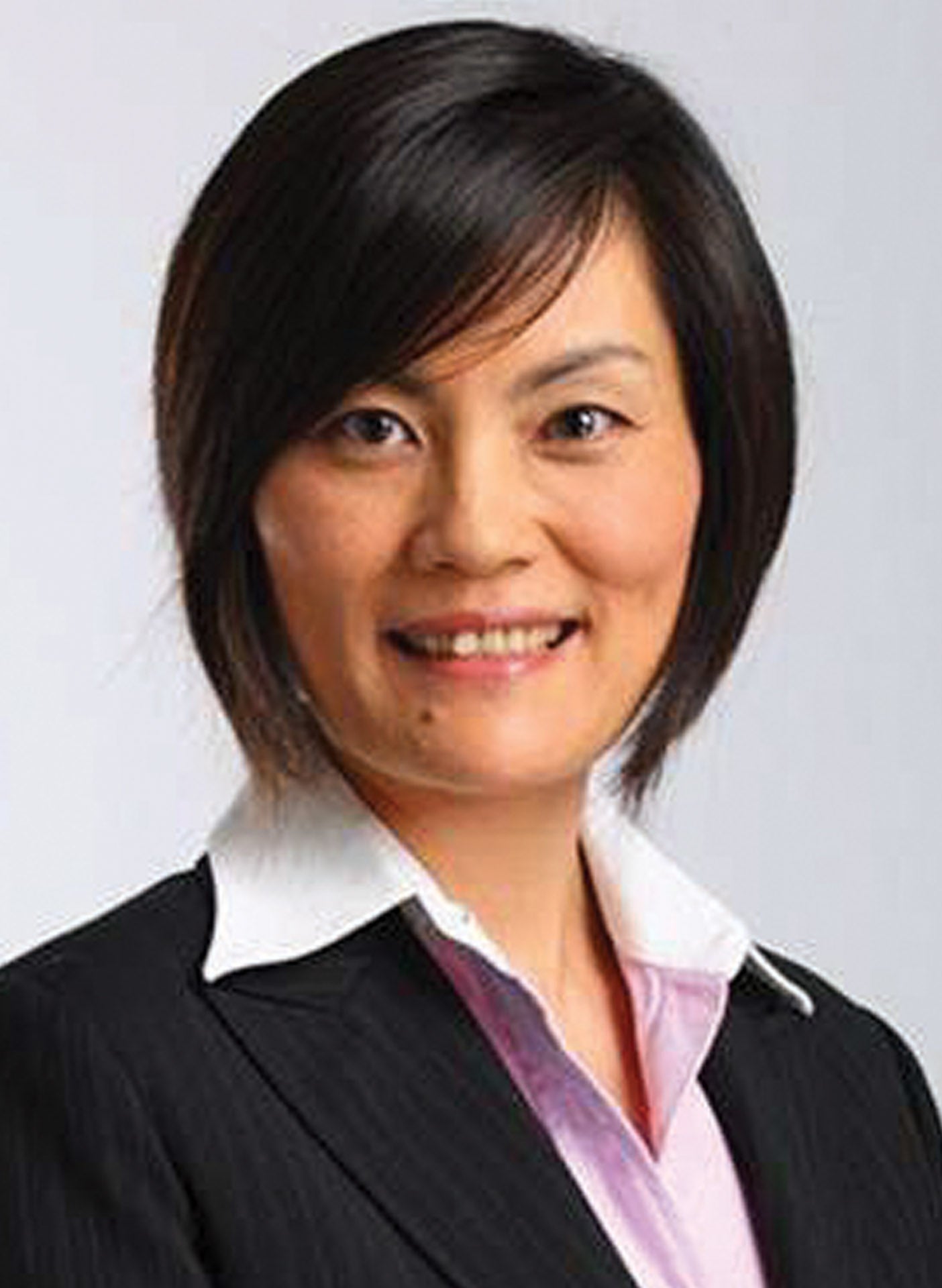
Weiwen Wang
GENERAL COUNSEL, ASIA
INTERNATIONAL PAPER
Weiwen Wang grew up in Shanghai during a time when the memory of China’s Cultural Revolution was still indelibly printed on the minds of urban professionals, not unlike her engineer-by-trade parents. Her parents wanted her to become an engineer like them. They would remind her, “The market always needs engineers; lawyers are considered expendable.” Going to law school was definitely not regarded as a judiciously thought-out plan; it was her small rebellion. However, her parents’ position was definitely not without merit. During the Cultural Revolution all private law practices closed, and the legal profession disappeared.
When law schools re-opened in the mid-1980s, she was among the first wave of brave new intakes despite the warning of a law professor that her father had introduced to her. During the revolution, he was displaced from his teaching post and spent years in rural Mainland China as a farmer. He warned her of the risks. Yet she forged ahead. “I’m lucky that it ended up working out well,” she says of her chosen profession.
She attended Fudan University for her bachelor’s of law. Staying relatively close to home, she worked at a law firm in Singapore for five years before embarking on her next adventure — the Big Apple.
She attended New York University for a Master of Law, and leaving was not an easy decision. At the time she was a wife and mother to a not-yet-crawling baby. She says:
I actually left my daughter with my parents in Shanghai when she was only six months old. At that time my husband was still working in Singapore. So for a little over one year, our family was sprawled across three different countries. I am grateful to my parents who took good care of my daughter and often showed her pictures of me so she could still recognize me when they visited me in New York about nine months later. It was very touching. I am thankful to have been blessed with such a supportive family.
The importance of connection
After graduation and subsequent admittance to both the China and New York bars, a family reunion was in order. She returned to China to work in private practice before deciding to move in-house. Her first in-house position was with Tyco International, and as Wang learned more about the business side of working for a multinational corporation, she came to realize that being a lawyer, whether in private or in-house practice, is her calling.
Wang currently works for International Paper as their Asia general counsel. As many in-house counsel tend to feel after leaving firm life, Wang sometimes misses sharing experiences with fellow lawyers, particularly those in the United States. She attended the ACC 2014 Annual Meeting with a specific goal — to reconnect. She says, “I have been on this international assignment for my company, from Memphis to Shanghai, for almost eight years. I feel like I am losing the connection with the US legal community.”
Wang also arrived at the meeting with a wealth of knowledge to share. She served as faculty for two sessions where she highlighted her experiences in China and the Asia Pacific region. When it comes to doing business in China, Wang advises keeping compliance at the forefront. She says, “Anticorruption compliance is really the focus of this new generation of Chinese leadership: How to enforce the rule of law. I would still view this as rule by law, but it’s better than rule by power or rule by people.”
The happy union of compliance and business
Wang doesn’t consider compliance a hurdle or hindrance to the business. “Having a strong compliance program can help the company in the long run,” she says. She explains that ethical behavior builds reputation, and being an ethical company is definitely an advantage over competitors that might look for shortcuts to squeeze profits. Additionally, Wang understands that as a multinational company International Paper has a lot more visibility than locally owned and operated businesses. Still, the headlines are inescapable, and some pundits have certainly posited whether or not China is targeting multinational companies for compliance enforcement. Wang says:
I don’t view this as a systematic or strategic targeting of the multinational companies. But multinational companies are easy targets and attractive targets. Their exposure attracts a lot of media and social attention. This makes us have to set a very high bar for our compliance programs.
Unsurprisingly, Wang spends roughly 30 to 50 percent of her time on compliance — reviewing policies, doing trainings, conducting investigation and coming up with remedial actions for the company, in addition to labor law compliance. Of the latter she says:
China has very protective labor laws in favor of employees. This sets very high standards for investors and makes the cost high, which can put you at a disadvantage to your competitors. I see this as a critical concern for the manufacturing side — whether we can still develop in China when the labor costs significantly increase.
The other half of her time is spent on strategic corporate issues, commercial contract review and staff management.
The Chinese wall between legal and compliance
Like Wang’s bifurcated focus, the structure of the law department helps to keep legal and compliance functions relatively independent. In addition to a legal assistant, there is a two person commercial team and a two-person compliance team. This structure was recently implemented. Previously, all lawyers used to be assigned to different business units. Wang wanted to separate those functions:
The commercial lawyers help the business with negotiating deals so the business will view them more as a service provider. The compliance team should carry some authority and be able to tell the business what they can and cannot do. They’re more or less viewed as the police, and from time to time they have to investigate compliance cases. So I tried to create a sort of Chinese Wall between the two functions.
The compliance team also reports to the ethics office in its Memphis headquarters. Wang reports to the general counsel in Memphis as well as the regional president. Of this reporting line, she says, “Having this dual reporting line is important. Reporting to the functional leader in headquarters really allows for alignment with headquarters.” She is able to build trust with the general counsel through constant communications and yearly visits. With this trust, Wang is given the power to make more decisions independently.
Moving forward, her strategic goal is to embed compliance into the culture of the company. There is still a lot of work to be done because compliance is about much more than policies.
In the early stages of her career, Wang’s family was dispersed. Now, they all share a roof, including her parents:
I’m actually very grateful for my parents and husband. They really give me a lot of support in terms of bringing up my daughter and keeping a demanding job at the same time. My parents take care of meals and most of the errands, which saves me a lot of time. My daughter provides a lot of joy to them so they’re not ever lonely during their retired life.
Although Wang has yet to plan out the next five years, they most certainly will include travel and making connections wherever she goes.
Getting to Know… Weiwen Wang
WHAT DO YOU LIKE TO DO FOR FUN?
Yoga. Travel. And now that my daughter is a high school student leaving for college soon, I try to spend more time with her. She’s at an age where it’s nice to be able to discuss deeper topics from religions to cultures, and build from each others’ unique perspectives.
We travel a lot, having seen more than 30 countries together already. During the trips we really create a strong bond. I don’t think my daughter would complain too much that I was not around for the day-to-day life; we’re very strongly connected.
HOW DO YOU BALANCE FAMILY WITH WORK?
I am a firm believer in the concept of “work hard, play hard.” I strive to be dedicated and focused when I’m working, but after I leave the office, I cherish the time I have to pursue activities I enjoy, such as yoga. It benefits me a lot. I’m not that great at meditation though. Sometimes I will sit down to meditate, but just as I close my eyes I’ll suddenly realize that I forgot a conference call. But still, it helps to regulate and relax my mind and shift gears.
WHERE DO YOU SEE YOURSELF IN FIVE YEARS?
I’m not a person who plans ahead too much. I know what I cherish in my life. I live for the present, and only plan for the near future when necessary. I didn’t exactly become a lawyer with a strong vision or goal in mind so I think that’s where eastern philosophy comes into the picture for me. It’s too strenuous to try to control everything. You can simply just follow the hints.
AT THE ACC ANNUAL MEETING YOU PRESENTED HOW TO USE INTERNATIONAL TREATIES TO PROTECT YOUR INVESTMENTS OVERSEAS. CAN YOU TELL US ABOUT THAT?
It is a challenge for me to consider this, especially in China where it’s more about local laws and local policies that really rule your investment negotiations and operations. But there is a trend in the international world to use bilateral investment treaties. China is in transition from an importing investment country to an exporting investment country. They are now actively participating in those treaties because they not only protect investments coming into China, but also Chinese investments overseas. Sharing this with my US colleagues — how to use these treaties to protect their investments in China — that’s the purpose of this session.




